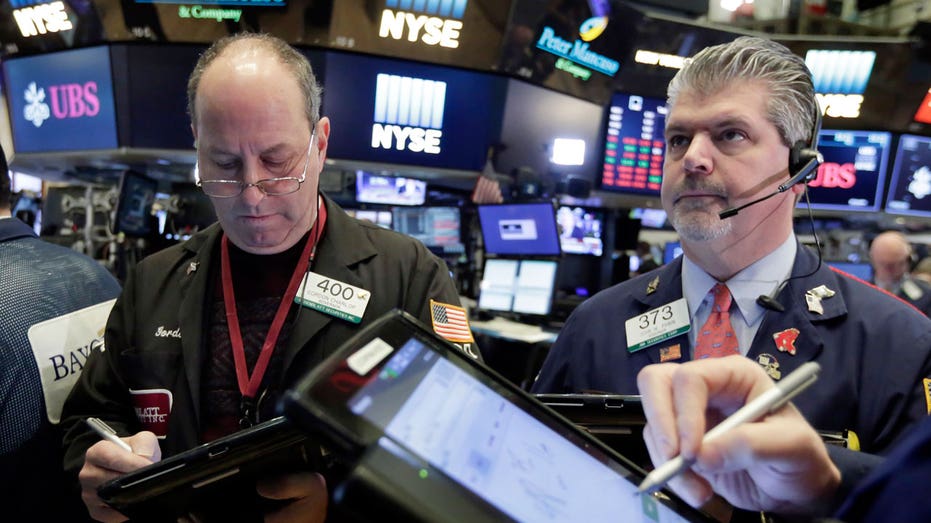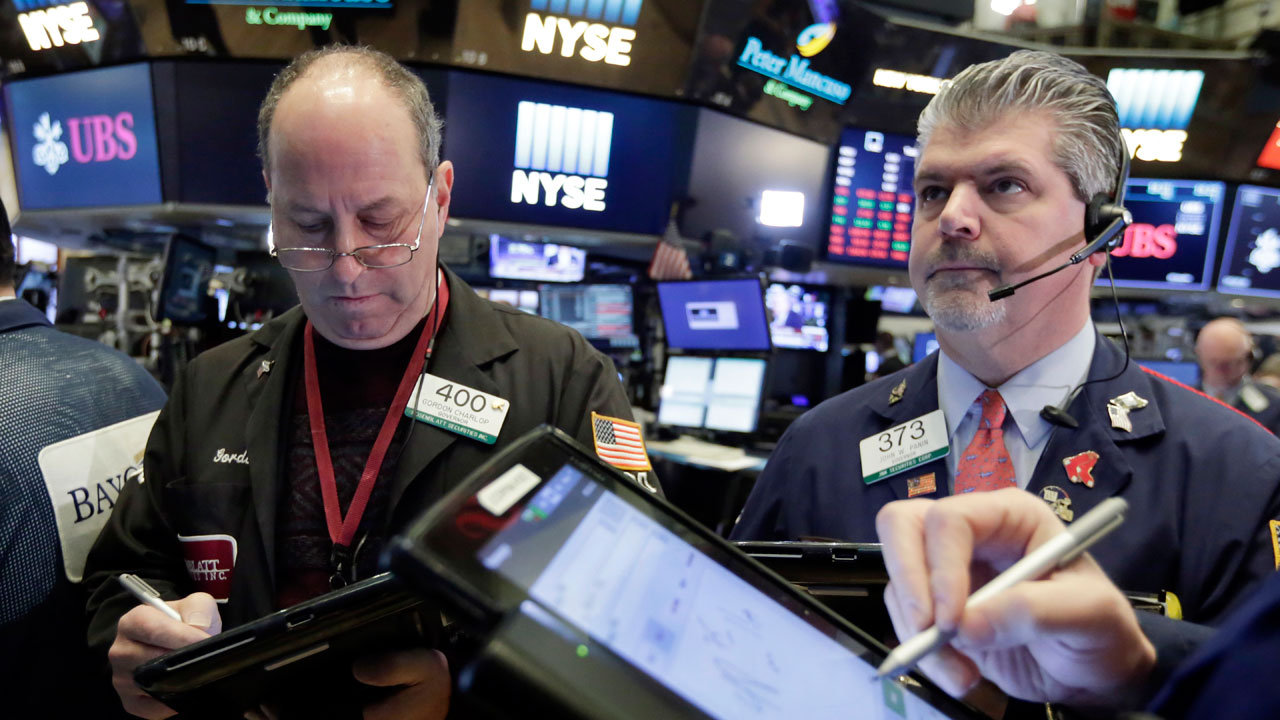Stock futures waver, Chinese indexes fall
Hong Kong and Chinese stocks are hit by fears around an economic slowdown and Evergrande’s debt problems
Fox Business Flash top headlines for September 15
Check out what's clicking on FoxBusiness.com.
U.S. stock futures shrugged off another day of losses in China and Hong Kong Thursday, where indexes were hit by gathering fears around an economic slowdown and debt problems with giant property developer China Evergrande Group.
Futures tied to the S&P 500 and the Dow Jones Industrial Average wavered between gains and losses, indicating that both indexes may see choppy trading after the opening bell. Contracts for the technology-heavy Nasdaq-100 edged down less than 0.1%.
Hong Kong’s Hang Seng shed 1.5% and China’s Shanghai Composite contracted 1.3%. Growth across a range of Chinese economic indicators pulled back sharply in August, as a new outbreak of the Covid-19 Delta variant and tighter government regulations on the property market hit consumer spending and the housing sector.
BILLIONS BLOWN AS MACAU CASINO INVESTORS FOLD AMID GAMBLING REVIEW

Traders Gordon Charlop, left, and John Panin work on the floor of the New York Stock Exchange, Tuesday, Feb. 6, 2018.
Investors were also worried that problems at Evergrande, one of China’s largest residential developers, could upend the country’s real-estate sector, which makes up a large part of economic spending and household wealth.
"Evergrande has brought forward that there are so many vulnerabilities in the China system and it’s hard to know where the Chinese government steps in," said Seema Shah, chief strategist at Principal Global Investors. "There is that just weighing on confidence."
Elsewhere, the Stoxx Europe 600 gained 0.6%. Shares of Lagardère surged 20% after media conglomerate Vivendi struck a deal to increase its stake in the French group, a move that opens the door to a full takeover.
Shares of Ryanair Holdings rose 4% after the airliner raised its five-year growth forecast to 225 million passengers by March 2026. Shares of other airlines also gained, with EasyJet up 3.3% and Wizz Air Holdings up 2.9%.
U.S. retail sales, due at 8:30 a.m. ET, are expected to fall in August. Supply-chain issues are hindering auto production and crimping sales, while resurgent Covid-19 is denting consumer confidence and possibly purchases at stores, restaurants and online.
Investors will also get fresh figures on the number of Americans who applied for first-time unemployment benefits in the week ended Sept. 11. Filings for jobless benefits reached a pandemic low at the start of September, but economists surveyed by The Wall Street Journal expect claims could tick higher in the most recent data.
In bond markets, the yield on the 10-year Treasury note ticked up to 1.309% Thursday from 1.302% Wednesday. Yields rise when prices fall.
OIL SLIPS BUT HOLDS TO MOST GAINS AFTER DRAW IN US STOCKS
U.S. stock futures edged down Thursday, following a rebound on Wall Street, with European indexes largely gaining and Asian ones mostly declining.
S&P 500 futures slipped 0.1% and futures tied to the Dow Jones Industrial Average were down 0.1%. The contracts don’t necessarily predict movements after the opening bell.
Europe stocks advanced Thursday. The Stoxx Europe 600 rose 0.5% in morning trade. Industrials and energy sectors led gains while materials and utilities sectors lost ground. The U.K.’s FTSE 100, which is dominated by large international businesses, climbed 0.3%. Other stock in Europe also mostly climbed as France’s CAC 40 gained 0.6% and Germany’s DAX gained 0.3%.
The Swiss franc, the euro, and the British pound dropped 0.3%, 0.2%, and 0.1% respectively against the U.S. dollar.
In commodities, international benchmark Brent crude was down 0.1% to $75.39 a barrel. Gold also slipped 0.6% to $1,784.40 a troy ounce.
The yield on 10-year U.S. Treasury strengthened to 1.302% from 1.301%. Yields move inversely to prices. German 10-year bund yields rose to minus 0.296% from minus 0.305% and the 10-year U.K. government debt known as gilts yield was up to 0.701% from 0.689%.
CLICK HERE TO READ MORE ON FOX BUSINESS
In Asia, indexes mostly fell as Hong Kong’s Hang Seng was lower 1.8%, Japan’s Nikkei 225 index declined 0.6%, and China’s benchmark Shanghai Composite shed 1.3% after gaining 0.6% earlier.




















